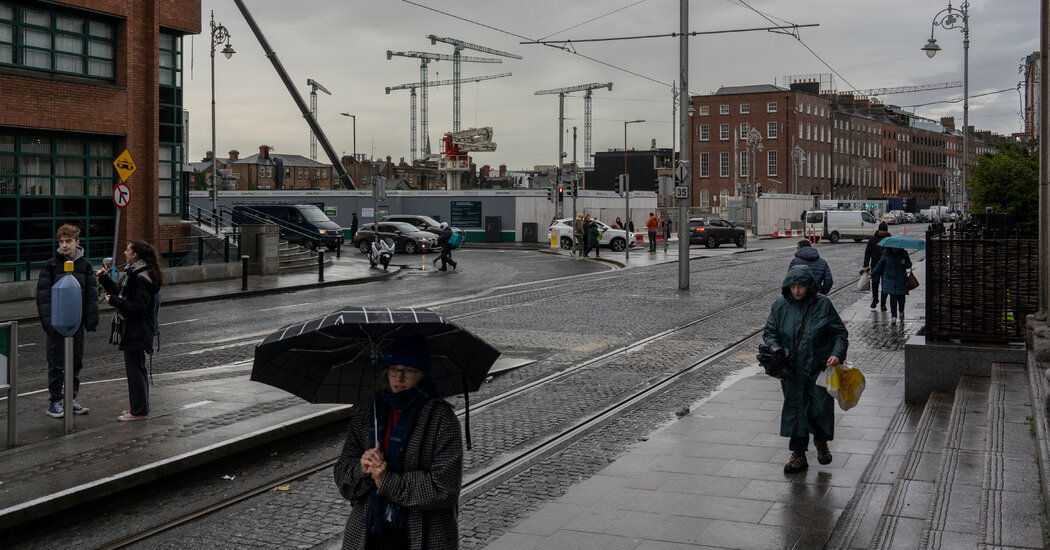Soaring rents have left many struggling to afford homes in Dublin and have created a generational divide. Two-thirds of younger adults in the city live with their parents.
Before sunrise each day, Aoife Diver, a teacher in Dublin, gets into her car and drives for up to 90 minutes from her uncle’s house to the opposite side of the Irish capital.
After school, it is back in the car for the reverse commute. On a recent evening, Ms. Diver, 25, sat in stop-and-go traffic, the red of the brake lights in front glowing through the windshield, as dusk turned to darkness.
It was not always like this. She used to share a house with five friends close to the school where she works in South Dublin. But when her rent and bills reached almost half of her monthly salary last year, she knew she had to move back in with family.
“There’s very little housing available, and what is available is way out of my reach,” she said. “Eventually, I probably will have to move somewhere else because I’m never going to be able to afford a house or an apartment on my own up in Dublin.”



This is the best summary I could come up with:
The skyrocketing cost of private rentals has left many people struggling to afford housing in Dublin and other Irish cities, pushing some to move abroad and others to commute long distances.
The crunch has left teachers and social workers priced out of the communities they serve, professional couples unable to buy homes and people on lower incomes fearing homelessness.
The recent xenophobic riots in Dublin capitalized on the grievances of people struggling to cover their housing costs and exposed to the world the deep fractures that the crisis has created.
During the Celtic Tiger period in the late 1990s and early 2000s, as Ireland’s economy boomed, private construction exploded and landlords were encouraged to scoop up rental properties as investments, squeezing out less affluent buyers.
Ireland set up the National Asset Management Agency, or NAMA, which acquired portfolios of delinquent loans and later sold them at discounted prices to so-called vulture funds.
The idea of evictions and lack of access to housing is particularly resonant, Mr. Doyle said, because of Ireland’s centuries under British rule, during which the callous absentee landlord became a byword for oppression.
The original article contains 1,261 words, the summary contains 186 words. Saved 85%. I’m a bot and I’m open source!